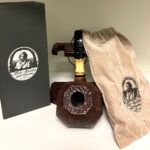When someone says ‘there is no safe level of exposure to secondhand smoke’ they are simply unaware of the facts or refuse to accept the truth, cautions the International Premium Cigar and Pipe Retailers Association. The IPCPR represents more than 2,000 retailers and manufacturers of premium cigars – mostly mom-and-pop small business owners – and is fighting South Dakota’s efforts to tighten its current statewide smoking ban.
Pierre, SD (PRWEB) February 6, 2009 — When someone says ‘there is no safe level of exposure to secondhand smoke’ they are simply unaware of the facts or refuse to accept the truth, cautions the International Premium Cigar and Pipe Retailers Association.
The IPCPR represents more than 2,000 retailers and manufacturers of premium cigars – mostly mom-and-pop small business owners – and is fighting South Dakota’s efforts to tighten its current statewide smoking ban.
Chris McCalla, legislative director for the IPCPR, says that misstatements are often made regarding secondhand smoke, especially about incidental secondhand smoke from premium cigars.
“The Surgeon General says more than 100 times in its report that evidence against secondhand smoke is ‘inconclusive.’ The problem is, most people only read the biased articles and summaries that make you think otherwise,” McCalla said.
“Based on the true facts of the report, the Occupational Safety and Health Administration – which is responsible for the health and welfare of the nation’s workers – established acceptable standards for secondhand smoke that are well outside of the range that might be found in a bar, restaurant or casino as confirmed by testing conducted by the independent and prestigious Oak Ridge National Laboratory,” he said.
“Therefore, there are indeed safe levels of secondhand smoke to be found in businesses everywhere.”
McCalla also cited the real danger of economic catastrophe that could hit South Dakota if the smoking ban is extended to include bars and casinos.
“When Iowa enacted its smoking ban, tourists flocked to South Dakota’s North Sioux City gaming areas. This definitely hurt Iowa business and tax receipts and helped South Dakota’s fragile economy. A tighter smoking ban will destroy that gain,” McCalla said.
“But don’t just take our word for it. The Federal Reserve Bank, using data generated by the Bureau of Labor Statistics, has found statistically significant employment declines resulting from smoking bans, especially in bars and restaurants,” he added.
McCalla reminded legislators that much of the state’s employment and tax revenues come from businesses who benefit from tourists who visit the state’s casinos.
“There’s no reason for a ban on smoking in the first place, but there is certainly nothing to be gained by tightening the current ban.”















